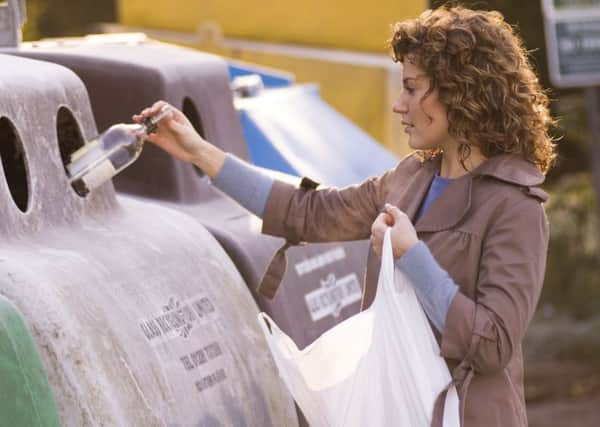Ilona Amos: dgdgdgd


Admittedly some of these recyclers were likely seeing red rather than green when they tipped their rubbish, but the list – from UK refuse management firm BusinessWaste – illustrates the sort of things that can end up in the wrong bins due to confusion over what is recyclable and what is not.
Can you identify the mobius loop or the green dot? Do you know the difference between PET 1 and HDPE 2? And what do those wee curly leaf or wiggly tree symbols mean? If you know exactly what I’m on about then you’re in the minority, according to new research.
Advertisement
Hide AdAdvertisement
Hide AdThe aforementioned are on-pack recycling labels, or OPRLs to those in the trade, and they are causing an increasing amount of confusion among householders across the country.
Results from the second annual UK Recycling Index, compiled by waste firm Viridor, has found that more than eight out of ten Scots feel the symbols stamped on product packaging are difficult to understand.
And fewer than half of us are confident we are disposing of our empties in the correct bin. Carry-out coffee cups and those black plastic trays, commonly used as food containers, seem to be causing some of the biggest uncertainty.
There is also mounting frustration and bewilderment over regional differences in what can and cannot be recycled, as well as concern over the repercussions of failure to properly deal with our growing mountain of trash. #
Viridor’s survey shows UK consumers believe there could be a number of negative consequences in the next 50 years if we don’t step up the amount of waste that is recycled or used to create energy. Three-quarters fear the oceans will be full of plastic (which is already happening) and seven in ten say high levels of water contamination are likely. Worryingly, the new poll also shows a growing lack of trust that national government is a safe pair of hands to take care of waste.
Recycling rates actually drooped across the UK has a whole for the first time in 2015, though I’m glad to say Scotland bucked the nationwide trend with a small rise. Official figures show 44.3 per cent of household waste collected north of the border in 2015 was recycled, though 1.15 million tonnes still went to landfill.
We’re due to find out today how we got on last year, when the Scottish Environment Protection Agency release the statistics for 2016. But regardless of the results, now is a good time – since it’s national recycling week – to consider how we can improve our performance.
Setting out nationwide targets on waste would be a good start – and eight in ten of those surveyed agree. Scotland’s Zero Waste Plan aims for 70 per cent of waste to be recycled and a maximum of five per cent going to landfill by 2025. The UK target is for a 50 per cent recycling by 2020, which is required under the terms of the EU’s Waste Framework Directive.
Advertisement
Hide AdAdvertisement
Hide AdConsistency among local councils over what items are recyclable or compostable would go a long way towards clarifying the issue, plus foolproof labelling, on packaging and collection systems, to help cut levels of contamination.
We still need to get more people on board by encouraging those who are not currently diligent recyclers to change their habits.